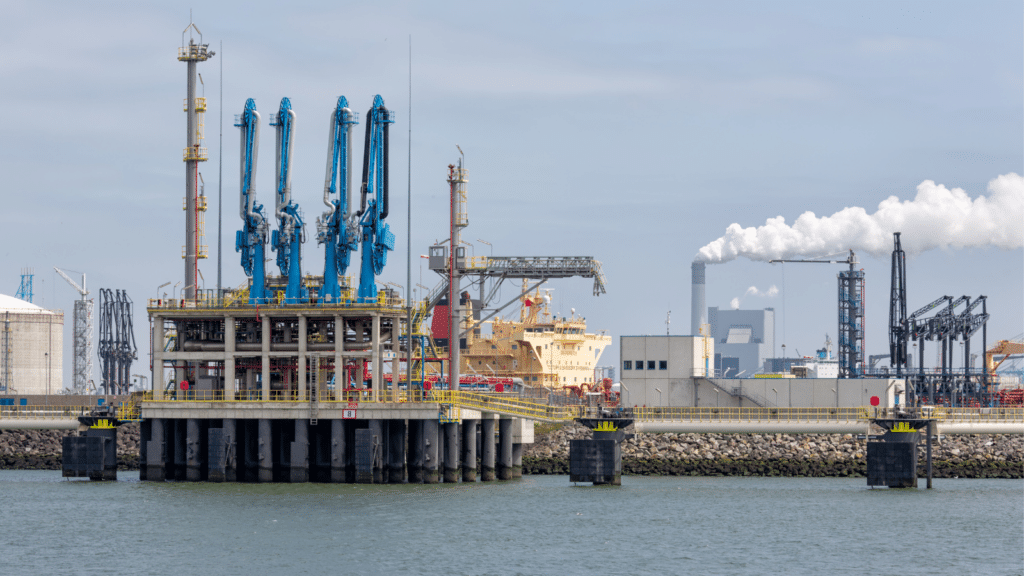Introduction In an unusual judgment, the Court of Justice found on 14 March 2024, in case C-516/22, Commission v UK, that the UK had infringed Article 4(3) TEU, Article 108(3) TFEU, Article 267(1)&(3) TFEU and Article 351(1) TFEU, in conjunction with Article 127(1) of the Agreement on the withdrawal of the UK from the EU because the UK Supreme Court […]
State Aid Law
Blog
State Aid Uncovered Blog
In Lexxion’s State Aid Uncovered blog, Prof. Phedon Nicolaides publishes weekly critical analyses of recent State aid judgments and decisions. Each post presents the key points of a court judgment or EU Commission decision, places it in the context of similar case law or practice, assesses the underlying reasoning and highlights any inconsistencies or contradictions.
Guest contributions from other State aid experts will also be published on the blog at irregular intervals to complement the content of the blog posts.
State Aid Uncovered ×
9. April 2024 |
State Aid Uncovered
by Phedon Nicolaides
Introduction The Commission, in decision SA.102163, authorised State aid for the construction of a terminal for liquefied natural gas [LNG] in Brunsbüttel, Germany.1 The project consists of an LNG import, storage and distribution facility with annual capacity of about 10 billion m3. The project is carried out by the German LNG Terminal GmbH [GLNG] which has three shareholders: the Dutch […]
2. April 2024 |
State Aid Uncovered
by Phedon Nicolaides
Introduction Suppose a Member State subsidises the installation of solar panels on the roof of a corporate building situated at number 5 on Main Street. Is this a general measure because there is no other building in the whole country with the same address? Of course, it is not a general measure. The uniqueness of the address is irrelevant. Apart […]
26. March 2024 |
State Aid Uncovered
by Phedon Nicolaides
Introduction On 28 February 2024, the General Court delivered an important judgment in case T-390/20, Scandlines v Commission.(1) The judgment is important because it interpreted the Commission guidelines on Important Projects of Common European Interest [IPCEI], the funding gap methodology for determining the necessary amount of aid and the 2008 Commission Notice on state guarantees. Scandlines sought annulment of Commission […]
12. March 2024 |
State Aid Uncovered
by Phedon Nicolaides
Introduction On 28 February 2024, the General Court delivered two important judgments on the presence of State aid and its compatibility with the internal market in connection to public funding of the Fehmarn Fixed Link between Denmark and Germany. The Fixed Link is a major infrastructure project consisting of tunnels, bridges and access road and rail connections. The judgments of […]
5. March 2024 |
State Aid Uncovered
by Phedon Nicolaides
Introduction On 22 February 2024, the Court of Justice [CJEU] delivered its judgment in joined Cases C-701/21 P and C-739/21 P, Mytilinaios v DEI & European Commission. Mytilinaios, a Greek company, and the Commission appealed against the judgment of the General Court in case T-639/14 RENV, DEI v Commission, concerning arbitration of a dispute between Mytilinaios and DEI, the main […]
27. February 2024 |
State Aid Uncovered
by Phedon Nicolaides
Introduction Most State aid to “large” investment projects is granted by the Member States in Central and Eastern Europe. Moreover, most of the aid goes to induce companies to locate their projects in those countries and to overcome regional handicaps that make the investments less profitable or even loss-making than in other locations. By contrast, regional aid granted to large […]
20. February 2024 |
State Aid Uncovered
by Phedon Nicolaides
Introduction On 19 May 2021, the General Court, in case T-643/20, Ryanair v Commission, annulled Commission decision SA.57116 by which it authorised State aid in favour of KLM in the context of the measures implemented by the Dutch government to address the covid-19 pandemic. In July 2021, the Commission re-adopted its original decision without the errors that had been identified […]
13. February 2024 |
State Aid Uncovered
by Phedon Nicolaides
Introduction A public measure can be classified as State aid only when it is funded from state resources. Measures funded from the budgets of public authorities are always considered to be supported by state resources. However, measures not funded from state budgets may still be supported by state resources. This is because, rather counterintuitively, the concept of state resources covers […]
6. February 2024 |
State Aid Uncovered
by Phedon Nicolaides
Introduction The prohibition of State aid in Article 107(1) TFEU applies both to direct and indirect beneficiaries. The direct beneficiary is the formal recipient of the aid. However, the formal recipient may only act as an intermediary through which aid flows to third parties or may in fact be required by the aid measure to pass on some or most […]
State Aid Uncovered ×
16. April 2024 |
State Aid Uncovered
by Phedon Nicolaides
Introduction In an unusual judgment, the Court of Justice found on 14 March 2024, in case C-516/22, Commission v UK, that the UK had infringed Article 4(3) TEU, Article 108(3) TFEU, Article 267(1)&(3) TFEU and Article 351(1) TFEU, in conjunction with Article 127(1) of the Agreement on the withdrawal of the UK from the EU because the UK Supreme Court […]
9. April 2024 |
State Aid Uncovered
by Phedon Nicolaides
Introduction The Commission, in decision SA.102163, authorised State aid for the construction of a terminal for liquefied natural gas [LNG] in Brunsbüttel, Germany.1 The project consists of an LNG import, storage and distribution facility with annual capacity of about 10 billion m3. The project is carried out by the German LNG Terminal GmbH [GLNG] which has three shareholders: the Dutch […]
2. April 2024 |
State Aid Uncovered
by Phedon Nicolaides
Introduction Suppose a Member State subsidises the installation of solar panels on the roof of a corporate building situated at number 5 on Main Street. Is this a general measure because there is no other building in the whole country with the same address? Of course, it is not a general measure. The uniqueness of the address is irrelevant. Apart […]
26. March 2024 |
State Aid Uncovered
by Phedon Nicolaides
Introduction On 28 February 2024, the General Court delivered an important judgment in case T-390/20, Scandlines v Commission.(1) The judgment is important because it interpreted the Commission guidelines on Important Projects of Common European Interest [IPCEI], the funding gap methodology for determining the necessary amount of aid and the 2008 Commission Notice on state guarantees. Scandlines sought annulment of Commission […]
12. March 2024 |
State Aid Uncovered
by Phedon Nicolaides
Introduction On 28 February 2024, the General Court delivered two important judgments on the presence of State aid and its compatibility with the internal market in connection to public funding of the Fehmarn Fixed Link between Denmark and Germany. The Fixed Link is a major infrastructure project consisting of tunnels, bridges and access road and rail connections. The judgments of […]
5. March 2024 |
State Aid Uncovered
by Phedon Nicolaides
Introduction On 22 February 2024, the Court of Justice [CJEU] delivered its judgment in joined Cases C-701/21 P and C-739/21 P, Mytilinaios v DEI & European Commission. Mytilinaios, a Greek company, and the Commission appealed against the judgment of the General Court in case T-639/14 RENV, DEI v Commission, concerning arbitration of a dispute between Mytilinaios and DEI, the main […]
27. February 2024 |
State Aid Uncovered
by Phedon Nicolaides
Introduction Most State aid to “large” investment projects is granted by the Member States in Central and Eastern Europe. Moreover, most of the aid goes to induce companies to locate their projects in those countries and to overcome regional handicaps that make the investments less profitable or even loss-making than in other locations. By contrast, regional aid granted to large […]
20. February 2024 |
State Aid Uncovered
by Phedon Nicolaides
Introduction On 19 May 2021, the General Court, in case T-643/20, Ryanair v Commission, annulled Commission decision SA.57116 by which it authorised State aid in favour of KLM in the context of the measures implemented by the Dutch government to address the covid-19 pandemic. In July 2021, the Commission re-adopted its original decision without the errors that had been identified […]
13. February 2024 |
State Aid Uncovered
by Phedon Nicolaides
Introduction A public measure can be classified as State aid only when it is funded from state resources. Measures funded from the budgets of public authorities are always considered to be supported by state resources. However, measures not funded from state budgets may still be supported by state resources. This is because, rather counterintuitively, the concept of state resources covers […]
6. February 2024 |
State Aid Uncovered
by Phedon Nicolaides
Introduction The prohibition of State aid in Article 107(1) TFEU applies both to direct and indirect beneficiaries. The direct beneficiary is the formal recipient of the aid. However, the formal recipient may only act as an intermediary through which aid flows to third parties or may in fact be required by the aid measure to pass on some or most […]
State Aid Uncovered ×
16. April 2024 |
State Aid Uncovered
by Phedon Nicolaides
Introduction In an unusual judgment, the Court of Justice found on 14 March 2024, in case C-516/22, Commission v UK, that the UK had infringed Article 4(3) TEU, Article 108(3) TFEU, Article 267(1)&(3) TFEU and Article 351(1) TFEU, in conjunction with Article 127(1) of the Agreement on the withdrawal of the UK from the EU because the UK Supreme Court […]
9. April 2024 |
State Aid Uncovered
by Phedon Nicolaides
Introduction The Commission, in decision SA.102163, authorised State aid for the construction of a terminal for liquefied natural gas [LNG] in Brunsbüttel, Germany.1 The project consists of an LNG import, storage and distribution facility with annual capacity of about 10 billion m3. The project is carried out by the German LNG Terminal GmbH [GLNG] which has three shareholders: the Dutch […]
2. April 2024 |
State Aid Uncovered
by Phedon Nicolaides
Introduction Suppose a Member State subsidises the installation of solar panels on the roof of a corporate building situated at number 5 on Main Street. Is this a general measure because there is no other building in the whole country with the same address? Of course, it is not a general measure. The uniqueness of the address is irrelevant. Apart […]
26. March 2024 |
State Aid Uncovered
by Phedon Nicolaides
Introduction On 28 February 2024, the General Court delivered an important judgment in case T-390/20, Scandlines v Commission.(1) The judgment is important because it interpreted the Commission guidelines on Important Projects of Common European Interest [IPCEI], the funding gap methodology for determining the necessary amount of aid and the 2008 Commission Notice on state guarantees. Scandlines sought annulment of Commission […]
12. March 2024 |
State Aid Uncovered
by Phedon Nicolaides
Introduction On 28 February 2024, the General Court delivered two important judgments on the presence of State aid and its compatibility with the internal market in connection to public funding of the Fehmarn Fixed Link between Denmark and Germany. The Fixed Link is a major infrastructure project consisting of tunnels, bridges and access road and rail connections. The judgments of […]
5. March 2024 |
State Aid Uncovered
by Phedon Nicolaides
Introduction On 22 February 2024, the Court of Justice [CJEU] delivered its judgment in joined Cases C-701/21 P and C-739/21 P, Mytilinaios v DEI & European Commission. Mytilinaios, a Greek company, and the Commission appealed against the judgment of the General Court in case T-639/14 RENV, DEI v Commission, concerning arbitration of a dispute between Mytilinaios and DEI, the main […]
27. February 2024 |
State Aid Uncovered
by Phedon Nicolaides
Introduction Most State aid to “large” investment projects is granted by the Member States in Central and Eastern Europe. Moreover, most of the aid goes to induce companies to locate their projects in those countries and to overcome regional handicaps that make the investments less profitable or even loss-making than in other locations. By contrast, regional aid granted to large […]
20. February 2024 |
State Aid Uncovered
by Phedon Nicolaides
Introduction On 19 May 2021, the General Court, in case T-643/20, Ryanair v Commission, annulled Commission decision SA.57116 by which it authorised State aid in favour of KLM in the context of the measures implemented by the Dutch government to address the covid-19 pandemic. In July 2021, the Commission re-adopted its original decision without the errors that had been identified […]
13. February 2024 |
State Aid Uncovered
by Phedon Nicolaides
Introduction A public measure can be classified as State aid only when it is funded from state resources. Measures funded from the budgets of public authorities are always considered to be supported by state resources. However, measures not funded from state budgets may still be supported by state resources. This is because, rather counterintuitively, the concept of state resources covers […]
6. February 2024 |
State Aid Uncovered
by Phedon Nicolaides
Introduction The prohibition of State aid in Article 107(1) TFEU applies both to direct and indirect beneficiaries. The direct beneficiary is the formal recipient of the aid. However, the formal recipient may only act as an intermediary through which aid flows to third parties or may in fact be required by the aid measure to pass on some or most […]













